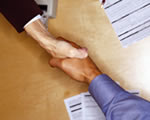 Go to main content
Go to main content
Archive Website of the UK government
Please note that this website has a UK government accesskeys system.
Main menu
Page menu
Money, tax and benefits

Opening and running a bank account

In order to open a bank account you'll need to complete an application form and provide certain personal information. For some accounts you'll also need to pay money in and the bank may want to check your credit history. Once the account's open you can start managing your money.
Opening a bank account
In order to open a bank account you'll usually be asked to:
- prove who you are
- prove where you live
- prove student status, if relevant
- fill in an application form
- in some cases pay some money into your account
For accounts that allow you to borrow or go overdrawn, the bank may want to run a 'credit check'; in other words to get references from previous banks or lenders that you are a reliable customer before opening the account.
Why you need to prove your identity
You need to prove your identity in order to help banks in the fight against money laundering whereby criminals try to open accounts - often in false names or using stolen identities - with money made from or intended for illegal activities. By law banks must check to make sure they know their customer before letting you open an account or buy their financial products or services.
Find out more on the Financial Services Authority (FSA) website.
Running a bank account
Your bank will give you information on how to run or manage your account. Account features differ, but typical procedures and documents you'll use or receive may include:
Documents/cards
- a cheque book and/or cash or debit card to make payments or get cash
- paying-in slips to pay in cash or cheques
- monthly, quarterly or yearly bank statements
Automated procedures
- you can set up direct debits or standing orders (automatic transfer arrangements) to pay bills and make other regular payments
- you can set up BACS (Bankers' automated clearing service) payments to receive regular payments, like salary, pension, benefits or investment income direct into your account
- you may be able to use telephone banking or internet banking to pay bills or move money between accounts
What happens if you go overdrawn?
Some accounts let you overdraw by a small amount (for example, £50) without charging. But if you go overdrawn without agreement you'll normally be charged interest on the amount - and a fee on top. In addition, the bank may refuse to pay your cheques or direct debits and will probably charge you for 'bouncing' (refusing) them. The fees can be very high, and you may have to pay an administration fee on top.
You may have to pay an arrangement fee for an overdraft agreement, but this is probably cheaper than regularly going overdrawn without an agreement. If you're worried about going overdrawn, a basic bank account, which won't allow this, may be right for you.
More useful links
Additional links
Foreign-owned banks

Should a bank fail, compensation schemes protect your savings. But foreign-owned banks may be covered in other ways
 Facebook
Facebook Twitter
Twitter StumbleUpon
StumbleUpon Delicious
Delicious Reddit
Reddit
